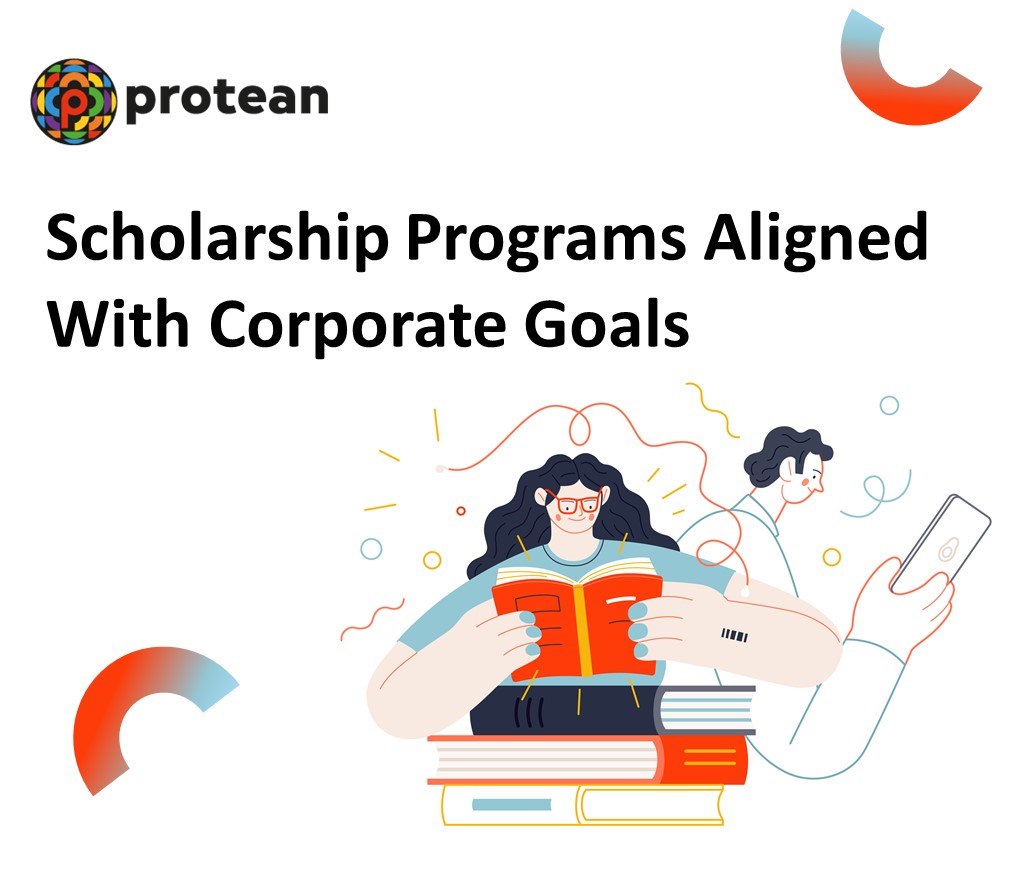The introduction of the Companies Act of 2013 marked a significant milestone for Corporate Social Responsibility (CSR) in India. This legislation mandated certain companies to allocate a portion of their profits towards socially beneficial activities, including education. This has led to a surge in corporate involvement in the education sector, with numerous companies supporting various educational initiatives. According to a report by the Ministry of Corporate Affairs, CSR spending in India reached over ₹26,000 crore (approximately US$3.5 billion) in FY2021, while in FY2022-23, it increased to ₹29,986.92 crore (approximately US$4 billion), reflecting the growing commitment toward educational initiatives.
While education remains a primary focus of CSR activities, there is a growing need for more targeted and effective approaches. Many children in India still lack access to quality education, leading to high dropout rates and unemployment. The National Statistical Office (NSO) reported that the dropout rate in India for secondary education was around 17.06% in 2018-19, highlighting the urgent need for intervention.
To address these challenges, corporations play a crucial role in enhancing the education system through well-designed scholarship programs. This blog explores how tailoring such programs can maximise the benefits of CSR while contributing to long-term social and economic impact.
Understanding corporate social responsibility is key to appreciating how it can be integrated into various business strategies. At its core, CSR involves a company's efforts to impact society and the environment while maintaining profitability positively. By taking socially responsible actions, companies demonstrate that they are committed to more than just financial gains. Many businesses now see CSR as a way to contribute to important causes like education, health, and environmental sustainability.
There are several types of corporate social responsibility initiatives, ranging from environmental sustainability efforts to social welfare programs. In the realm of education, CSR activities include funding schools, providing scholarships, improving infrastructure, and enhancing teacher training.
Among these, scholarship programs are particularly impactful, as they provide direct financial aid to students who need it most. Customising these programs allows corporations to focus on specific goals, such as promoting gender equality, skill development, or supporting students from underrepresented communities.
The benefits of CSR in the education sector have grown significantly since the introduction of the Companies Act of 2013, which mandated CSR contributions for certain businesses. Education has become a top priority for many CSR programs, with companies investing in scholarships and other initiatives aimed at improving educational access and quality across India. In FY2023, corporate social sector spending reached approximately ₹23 lakh crore (US$280 billion) (8.3% of GDP), with a significant portion directed towards educational initiatives.
Despite these efforts, there are still major gaps in education, particularly in rural areas and underprivileged communities. Many children, especially in rural regions, lack access to quality education, and even those who complete their studies often face unemployment due to a lack of practical skills.
According to the World Bank, around 80% of graduates in India are considered unemployable due to skill mismatches.
Addressing these challenges requires a more focused and customised approach to educational funding through CSR.
By creating tailored scholarship programs, companies can ensure that their CSR efforts align with their business values and societal needs. The benefits of CSR are multifaceted. Companies can directly contribute to the betterment of society by supporting education.
1. Skill-Based Learning
One of the biggest challenges in India’s education system is the lack of emphasis on practical, skill-based learning. Most educational curricula focus on traditional fields, leaving students underprepared for the evolving job market. Corporations can bridge this gap by designing scholarship programs that promote vocational training and skill development.
This not only addresses the benefits of corporate social responsibility but also helps businesses by creating a workforce that is better equipped with relevant skills for specific industries.
2. Enhancing Rural Education
There is often an imbalance in educational funding between urban and rural areas, with rural schools receiving fewer resources. Corporations can play a crucial role in this by directing their scholarship programs towards rural areas, where education is less accessible. Scholarships that focus on rural students can significantly improve the education landscape in these regions, offering students opportunities they may not have otherwise had.
3. Teacher Training and Development
A well-trained educator is fundamental to improving the quality of education. Companies can use their CSR resources to provide training programs for teachers, equipping them with modern teaching techniques and tools. By doing so, corporations can ensure that students receive a quality education.
4. Supporting Educational Infrastructure
In addition to financial scholarships, corporations can improve educational outcomes by investing in infrastructure, including modern classrooms, libraries, laboratories, and digital learning tools. Scholarships that fund infrastructure improvements ensure that students have a conducive learning environment.
Vidyasaarathi is an innovative platform developed by Protean eGov Technologies Limited, aimed at bridging the gap between students in need of financial assistance and corporate-funded scholarship programs. It allows companies to create and manage their own education finance schemes, aligning perfectly with their CSR goals.
Since its inception, Vidyasaarathi has had a tremendous impact. Over 10 lakh students have registered on the platform, and many leading corporations have disbursed scholarships through it. This initiative showcases the benefits of corporate social responsibility by demonstrating how businesses can contribute to the education sector while aligning their CSR goals with broader societal needs.
Corporations can use Vidyasaarathi to customise scholarships that promote skill development, help underprivileged students, and improve access to higher education. In doing so, they fulfil their CSR obligations while also contributing to the development of a skilled workforce, which is a significant advantage for industries in the long term.
Companies should assess the effectiveness of their customised scholarship programs through a CSR report that measures the direct and indirect impact of these initiatives. Metrics can include the number of students supported, the improvements in educational outcomes, and the long-term employability of the beneficiaries.
These reports not only highlight the benefits of corporate social responsibility but also help businesses refine their CSR strategies. By monitoring the outcomes, companies can make data-driven decisions to enhance their scholarship programs further, ensuring they continue to align with both corporate goals and societal needs.
Quantitative Metrics
Quantitative Metrics
Quantitative measures could include:
- The number of scholarships awarded
- Graduation rates of scholarship recipients
- Employment rates post-graduation
- The overall amount of funds allocated to scholarships
Qualitative Metrics
Qualitative measures could involve:
- Student satisfaction and feedback
- Improvement in academic performance
- Testimonials from beneficiaries
By incorporating both quantitative and qualitative metrics into a CSR report, companies can paint a complete picture of their impact, so that they can see that their scholarship programs continue to evolve and create meaningful change.
The benefits of corporate social responsibility go far beyond fulfilling legal obligations. When companies invest in education, they are helping to shape the next generation of workers, leaders, and innovators. Customised scholarships allow businesses to focus their resources where they matter most, fostering goodwill, enhancing corporate reputation, and building a more educated workforce.
1. Building a Skilled Workforce
By focusing on skill development through scholarship programs, companies are essentially creating a pool of future employees who are already familiar with the skills required in their industries. This creates a mutually beneficial relationship, where students receive valuable education and job opportunities, while companies secure a steady stream of skilled workers.
2. Strengthening Brand Reputation
Investing in education through CSR initiatives also strengthens a company’s reputation. In today’s world, consumers and employees prefer to engage with brands that demonstrate ethical responsibility. A company that actively contributes to societal well-being is more likely to build stronger relationships with its customers, employees, and stakeholders.
Conclusion
The benefits of CSR are clear—companies that invest in education not only contribute to societal improvement but also gain long-term advantages. Customised scholarship programs offer businesses a way to align their CSR efforts with their corporate goals.
By focusing on education, companies can help bridge the gap in access to quality learning, develop a skilled workforce, and build a positive corporate image. In addition, platforms like Vidyasaarathi make it easier for corporations to design and manage these scholarships.
As more businesses understand the benefits of corporate social responsibility, the impact of these initiatives on both education and society will continue to grow. Through tailored scholarship programs, corporations can truly make a difference, one student at a time.
- Story by Bruhadeeswaran R.

